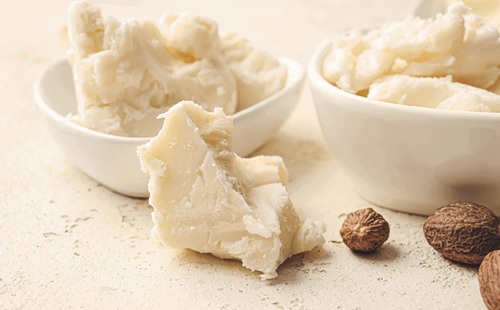By Wisdom JONNY-NUEKPE
The Tree Crops Development Authority (TCDA) has directed all exporters of unprocessed rubber, cashew and shea to obtain permits in order to export the commodities.
This directive, according to the TCDA, will begin on May 2, 2025 and applies also to individuals who trade in the commodities.
A statement by the Authority copied the B&FT indicated: “Businesses will need a permit to export unprocessed rubber, cashew and shea from May 2. Individuals engaged in the export of these unprocessed commodities from Ghana must first obtain written authorisation from the TCDA, in line with new regulatory measures”.
The statement was signed by CEO-TCDA Andy Osei Okrah and underscored the TCDA’s legal mandate under the Authority’s Act, 2019 (Act 1010) and Tree Crops Regulations, 2023 (L.I. 2471) to regulate and develop the production, processing and trading of key tree crops including rubber, cashew, shea, mango, coconut and oil palm.
“This directive serves to inform all Actors and Entities involved in the export of unprocessed rubber, cashew and shea of their obligation to comply with provisions of the Tree Crops Regulations, 2023 (L.I. 2471),” the statement noted.
According to the TCDA, Regulation 50 of L.I. 2471 will be activated on the said date, making it mandatory for all exporters of the three specified crops to secure a valid permit from the Authority prior to shipment.
In a move aimed at streamlining export operations and ensuring regulatory compliance, the Authority has also directed that: “All TCDA Licenced exporters are therefore advised to regularise their export transactions with the Authority and ensure full compliance with L.I. 2471”.
Furthermore, exporters will now be required to provide proof of payment for TCDA development levies before they are issued with a Phytosanitary Certificate by the Plant Protection and Regulatory Services Directorate (PPRSD). The TCDA clarified that the Phytosanitary Certificate, a vital document for international trade in plant products, will not be issued without this confirmation.
“Failure to comply with this directive constitutes a breach of the law and may attract sanctions in accordance with relevant provisions of the TCDA Act,” the Authority warned.
Shea employers’ want ban on raw shea export
Earlier this week, the Ghana Shea Employers Association (GSEA) renewed calls for an immediate ban on the export of raw shea nuts – citing the growing threat to local processors, value chain actors and the broader economy.
The Association appealed for government and policymakers to implement urgent interventions that halt the export of raw shea nuts, which they say is essential to sustaining local production and creating jobs.
It warned that the increasing export of raw shea nuts without proper regulation is not only leading to economic loss but also damaging the environment, as the country loses up to 300 percent of its potential value by exporting raw shea instead of processing locally into shea butter and other products.
However, the Association is optimistic that a strong licencing regime for exports will as well curb challenges in the sector.










